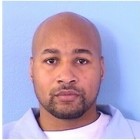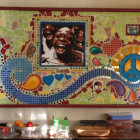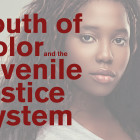
Growing Number of States Moving Away from Juvenile Solitary Confinement
|
Behold the landscape of juvenile solitary confinement, and how quickly it can change.
Juvenile Justice Information Exchange (https://jjie.org/page/283/)

In late September, Torri was driving down the highway with her 11-year-old son Junior in the back seat when her phone started ringing.
It was the Hamilton County Sheriff’s deputy who worked at Junior’s middle school in Chattanooga, Tennessee. Deputy Arthur Richardson asked Torri where she was. She told him she was on the way to a family birthday dinner at LongHorn Steakhouse.
“He said, ‘Is Junior with you?’” Torri recalled.
Earlier that day, Junior had been accused by other students of making a threat against the school. When Torri had come to pick him up, she’d spoken with Richardson and with administrators, who’d told her he was allowed to return to class the next day. The principal had said she would carry out an investigation then. ProPublica and WPLN are using a nickname for Junior and not including Torri’s last name at the family’s request, to prevent him from being identifiable.
When Richardson called her in the car, Torri immediately felt uneasy. He didn’t say much before hanging up, and she thought about turning around to go home. But she kept driving. When they walked into the restaurant, Torri watched as Junior happily greeted his family.
Soon her phone rang again. It was the deputy. He said he was outside in the strip mall’s parking lot and needed to talk to Junior. Torri called Junior’s stepdad, Kevin Boyer, for extra support, putting him on speaker as she went outside to talk to Richardson. She left Junior with the family, wanting to protect her son for as long as she could ...

Behold the landscape of juvenile solitary confinement, and how quickly it can change.

The Illinois Supreme Court ruled Thursday that Adolfo Davis, who was 16 when sentenced to mandatory life without parole for murder, will be eligible for new sentencing in a ruling that cracks open the door for scores of other inmates convicted while young to potentially live outside of prison as free.

CHICAGO — Tuesday afternoons around lunchtime, Precious Blood Ministry in Chicago’s Back of the Yards neighborhood opens for a group of mothers chatting up to the door, balancing home-made lasagna and chocolate chip cookies. They come from the West and South Sides of Chicago, and they’re good friends despite their circumstances for coming together, which isn’t just to discuss the polar vortex over sloppy joes. The group’s leader is a redheaded real estate agent named Julie Anderson, whose brawling voice precedes a plain-spoken personality highlighted by intermittent, self-deprecating quips at the expense of her own Catholic idiosyncrasies. Others include mother-daughter pairs and grandmothers who make the trek down to Precious Blood every week alone. One woman carries a petition along with a photo of her son everywhere she goes.

Reading through JJIE’s extensive coverage regarding racial and ethnic disparities in juvenile justice over the past month, reviewing its excellent new DMC resource hub, and scanning the available literature, it is impossible to avoid a couple of painful conclusions.

CHICAGO — In 2004, 21-year-old David Koschman lost his life in a drunken confrontation. Nearly 10 years later, his killer has only begun to face judicial consequences for the crime. For seven years, Koschman’s case remained an unsolved homicide, despite several witnesses identifying Richard “R.J.” Vanecko as the assaulter who punched Koschman in the face after a long night of drinking, causing Koschman to fall backward and hit his head on the street. Koschman died 12 days later but the assaulter was never charged. A 2011 Chicago Sun-Times investigation led to the eventual indictment of Vanecko, nephew of former Chicago Mayor Richard M. Daley, in 2012.

North Carolina is the only state in the U.S. that treats all 16 and 17-year-olds as adults when they are charged with criminal offenses and then denies them the ability to appeal for return to the juvenile system. Although New York also ends juvenile court jurisdiction at 16, it has a law that allows judges, in certain circumstances, to seal the criminal conviction of a 16 or 17 year old and sentence her to probation. Only nine other states end juvenile court jurisdiction at age 17, with the vast majority prosecuting everyone under 18 in juvenile court. Despite the fact that child welfare advocates, scholars and some lawmakers in North Carolina have repeatedly backed legislative proposals to extend jurisdiction to ages 17 or 18, they have consistently been defeated on the state level. Why does the upper age of juvenile court jurisdiction matter? The main reason is that young people who are convicted of criminal offenses face significant barriers when attempting to secure jobs or gain access to higher education.

Jafar Abbas knows more than he’d like about recidivism – and its cruel costs. It robbed him of his youth, many prime years, too; more than a quarter century.

I learned to fear black men at a relatively late age. Although I was brought up in south Georgia in a time when open racism was still common, my parents carefully taught me not to judge others based on race.